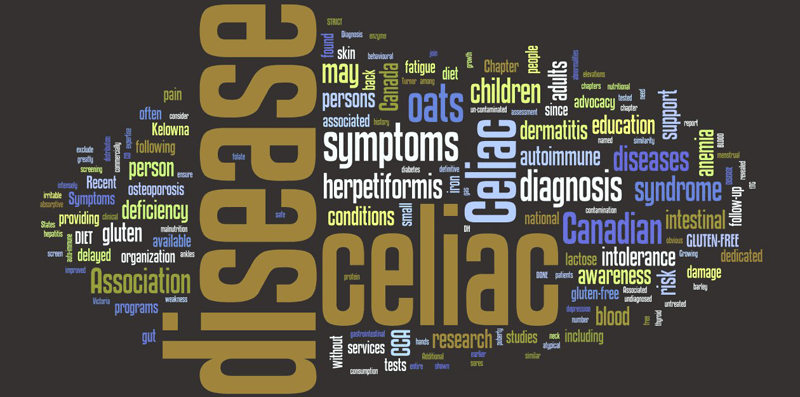In yesterday’s post, I wrote about gluten and all its disguises in packaged foods and catering menus. Today, I’m defining Celiac Disease and gluten sensitivity.
What is Celiac Disease?
Celiac Disease is a genetic autoimmune digestive disorder (the immune system attacks the body when certain foods are eaten) that damages the villi of the small intestine, interfering with the absorption of nutrients needed for good health. Continued exposure to gluten can result in malnourishment—vitamin and mineral deficiencies—and other conditions such as anemia, osteoporosis, neurological disorders and more.
Originally thought to be rare, celiac disease is now recognized as one of the most common genetic diseases worldwide. It is estimated that one in 133 Americans (1 percent of the population) and one in 266 people worldwide have celiac disease. We have no medicine to cure celiac disease, so a strict, 100 percent gluten-free diet is the only treatment for the disease today.
Common Symptoms
Although the symptoms of celiac disease are not immediately life-threatening, the autoimmune disorder affects not only the gastrointestinal system, but many other bodily systems, resulting in a wide range and severity of symptoms, including:
[row][column size=”1/2″] [list icon=”icon: check” icon_color=”#d81c5c”]- Abdominal Pain
- Anemia
- Bloating
- Delayed Growth
- Depression
- Dermatitis Herpetiformis (itchy blisters)
- Diarrhea
- Dental Enamel Defects
- Fatigue
- Gas
- Infertility
- Joint Pain
- Pale Sores in Mouth
- Migraines
- Nausea
- Numbness in Legs
- Osteopenia (low bone density)
- Osteoporosis
- Weight Loss
Can you be gluten-sensitive and not have Celiac Disease?
Yes. Non-celiac gluten sensitivity, a clinically recognized condition, is less severe than celiac disease, yet they share many symptoms. An innate immune-system response (different from an autoimmune or allergic response), which can appear hours or days after gluten has been ingested, non-celiac gluten sensitivity occurs in individuals who experience celiac-like symptoms without the intestinal damage caused by celiac disease.
Common symptoms of non-celiac gluten sensitivity:
[list icon=”icon: check” icon_color=”#d81c5c”]- Headache
- “Foggy mind”
- Joint Pain
- Numbness in the legs, arms or fingers
As an event or catering professional, when you ask (and you should) your event participants if they are gluten-free, you need to handle their needs as if they do have celiac disease. You cannot make assumptions about their health or their preferences. It could be costly.
For more facts and figures on celiac disease, see the National Foundation for Celiac Awareness or Celiac Disease Foundation.



